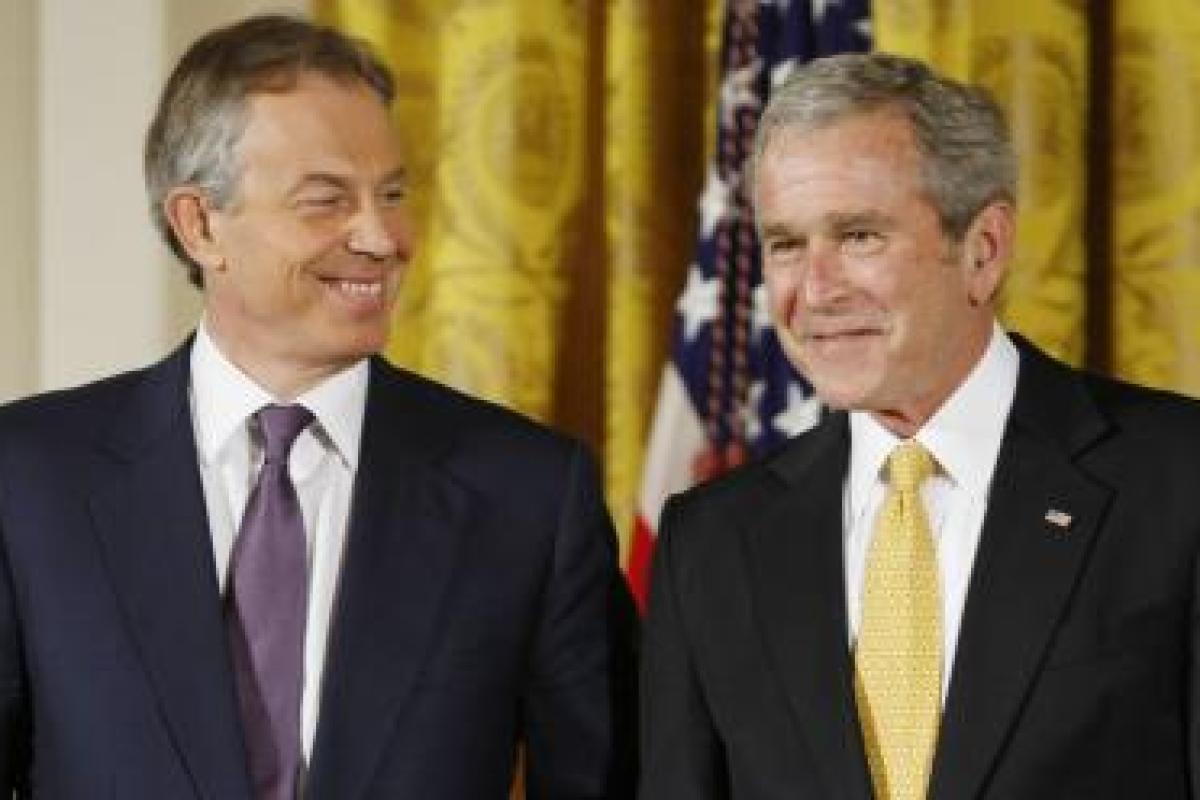‘The thing about Tony’, drawled the President, ‘is that he does what he says he’s gonna do.’
When Tony Blair was in the final stages of his premiership – and not terribly popular at home - he embarked on what to all intents and purposes looked like a valedictory world tour.
Along the way, he was mobbed by adoring crowds of cheering foreigners waving Union Jacks in a way that Brits hadn’t since that first sunny morning in May 1997.
Obviously, The Big Stop was Washington DC.
There, in the Rose Garden, a reporter asked President George W. what he could say about the outgoing Prime Minister. And he answered as above.
Stop for a moment.
The ultimate accolade that a President could pay a Prime Minister was that he did what he said he was going to do.
This is hugely powerful, and terribly instructive. When you think about it’s what we all want, right – for people to do what they say they’re going to do? We want that from our friends, our colleagues, our boyfriends, girlfriends, husbands, wives... everybody. Brands are no exception.
But for many, many years, they thought they were. A brand would say that they, or one of their products or services, would do one thing but the reality, as consumers on the ground experienced, was often very different.
It was about priorities. The money would go into marketing, tons of cash being pumped into hyping the message, selling ‘the dream’. And not into customer experience.
But the brands would ‘get away with it’ because disappointed consumers had little comeback. Some would complain, of course. But their complaints were as individuals, lowly Davids against corporate Goliaths, and thus – provided that the marketing machine kept up the propaganda - the reputation of the product or service would remain intact until the market had been saturated.
Not any more.
As every green, young graduate of a marketing or media studies degree will enthusiastically tell you (regardless of whether you asked) social media changed everything.
The voice of consumers now has scale. Serious scale. And so the tables have turned. Shoddy, or simply underwhelming, products and services that just don’t match the hype are taken to task on twitter, Facebook and the rest – and seen and read by millions. Suddenly, consumers are Goliath and the brands are Davids.
Some brands have understood the truly Copernican nature of this shift with corporate dollars flowing away from marketing hype and towards genuine customer-centricity (often executed with all the elegance of a drunk elephant, but well-intentioned nonetheless).
But that is a minority.
Others, the majority, the rabbits-stock-still-in-front-of-the-oncoming-juggernaut, respond with more of the same: ‘Consumers are flighty? Let’s redouble our efforts to convince them it’s all ok. Quick! More marketing! More hype!’.
Consumers know this, and they hate it. Authenticity in marketing has long since become a cliché (which doesn’t mean it’s not true) but it goes much deeper than that.
We are, I think, talking about the need for a fundamental review of corporate structures, budgets and, most importantly, mindsets. We might need to, gulp, recognise that... the high water mark of marketing may well have been reached.
That doesn’t mean that marketing isn’t important. It is, and it always will be. We all want to show the best side of our business, of our products. It’s just that, increasingly, it probably isn’t as important as ensuring satisfied consumers, who, after all, now have the ability to do our marketing for us.
I once knew an HR Director who suggested to the CEO that they close the entire HR department, make everyone, including herself, redundant and invest all the money instead in a fund to pay employment lawyers on an as-needed basis.
What if, just, what if, there was a CEO brave enough to think about doing the same with a bloated marketing department, investing all the savings not in lawyers, but in guaranteeing a world-class service to consumers each time, every time?
You might think it’s stupid.
But the world thought Dubya was stupid….
Nick Jefferson is a partner with Monticello LLP, the advisory firm, and a curator of The Library of Progress.
Read more from him here.
